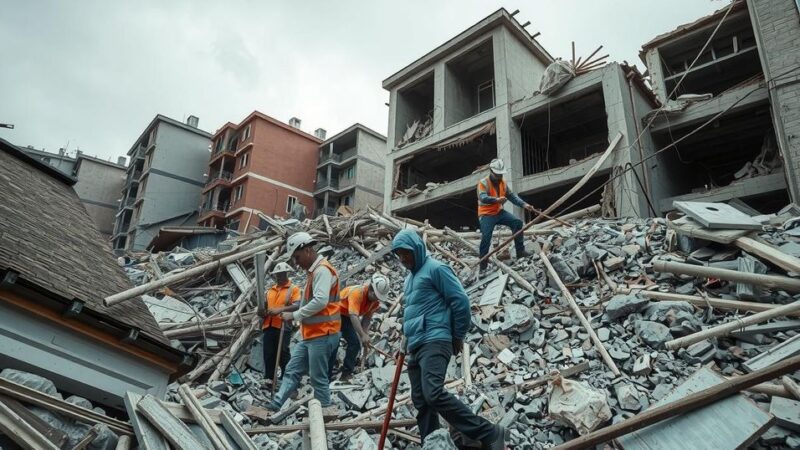The article highlights the direct impacts of climate change on children’s lives in Zimbabwe, particularly in rural areas like Masvingo. Local schools are integrating climate education to empower the youth, exemplified by teachers training through KOICA and UNICEF. Students are becoming increasingly aware of the challenges they face and are motivated to learn and advocate for solutions to climate change.
In Zimbabwe, the adverse impacts of climate change are increasingly evident, affecting daily life through failed crops, water shortages, and severe storms. Particularly in rural Masvingo, children and educators are feeling these effects first-hand while also working towards solutions. Educators like Fungai Makureke from Sikato Primary School note that rainfall patterns have become unpredictable, disrupting agricultural cycles that the community heavily relies upon. The 2024 El Niño-induced drought has been unprecedented, leading to crop failures and water scarcity.
To address these challenges, organizations such as the Korea International Cooperation Agency (KOICA) and UNICEF are collaborating with local educational ministries to integrate climate education into curricula. Teachers, including Priscilla, are being trained to equip students with the knowledge and skills needed to navigate climate-related issues. “I want to help children understand what’s happening around them—and what they can do about it,” Priscilla explains. By fostering awareness and resilience among the youth, they aim to cultivate a generation prepared for the future.
Students like eleven-year-old Mollene Masiya from Chitembere Village have begun to comprehend the significance of climate change. “When the rains come, there is food,” she remarks, underlining the direct impact of climate variability on her daily life. With dwindling water sources, the struggle for basic necessities often hinders her ability to attend school. Similarly, fourteen-year-old Tapfuma Bhasikoro from Magwa Village has witnessed the destructive power of storms that have damaged school infrastructure. Despite such challenges, he expresses optimism: “If we learn more about climate change, maybe we can change how we live and protect our environment.”
Across Zimbabwe, a new generation is not only confronting the challenges posed by climate change but is also being empowered to become advocates for environmental sustainability. Through education and community engagement, these young individuals are positioning themselves as future leaders in the fight against climate change.
Zimbabwe’s youth are increasingly affected by climate change, facing erratic weather patterns that challenge their livelihoods and education. However, through climate education initiatives led by organizations like KOICA and UNICEF, teachers are equipping students with the necessary tools to understand and mitigate the impacts of these environmental changes. The generation of students is not only learning about climate change but also developing hope and resilience as they prepare to advocate for environmental solutions. Their experiences signify a vital movement towards awareness and action against climate challenges in their communities.
Original Source: www.unicef.org






